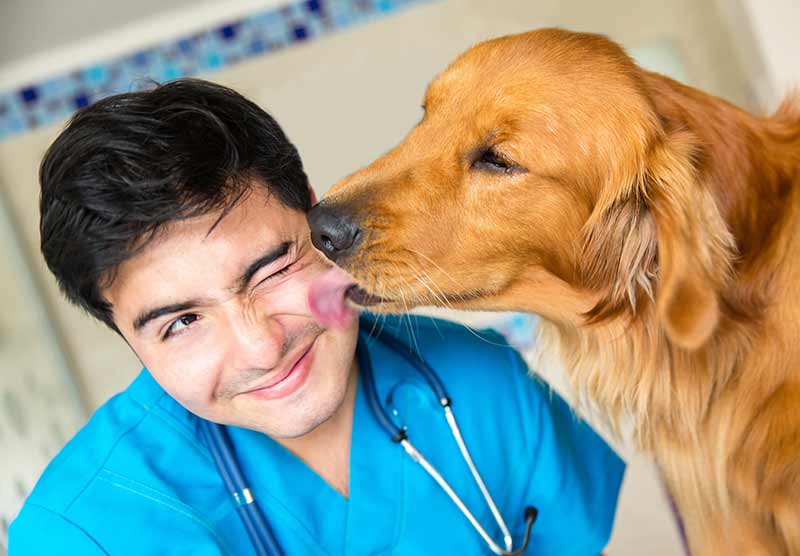
For one reason or another, some pet owners find it hard to disclose some information to their vets. This may be due to them thinking that it isn???t important, they???re embarrassed, or that they don???t want to look silly. No matter the reason, all information should be told to the vet as it could mean the difference between your pet staying healthy or not.
Petplan will take a look in to the top 5 things owners don???t want to tell their vet, but should???
-
You have a budget
Vets understand that not everyone has the money saved up for when their pet becomes sick or injured as it can happen at the worst of times. With the advancements in technology, your pet can be diagnosed and you will be recommended the best course of action in tackling their problem. However vet bills can rise quickly, so if you have a budget or a certain amount available, let your vet know as soon as possible.
By letting them know about your limits, they will be able to work with you to find the best plan of action or assist you with finding help for payments through credit lines or payment plans. It opens up communication between both of you with your pet???s best interest in mind.
-
Your cat goes outside
As a cat owner, your four legged friend may have started as an inside kitty, but eventually found its way to being outside more often than not. If this is the case, your vet needs to know immediately. Felines that spend most of their time outside are more prone to infectious diseases and other ailments. You will need to get some vaccines that indoor cats are not required to get, as well as increasing your flea treatments as they are more at risk of catching fleas as they roam around outside.

-
Your pet ate something???but you can???t/won???t say what
Our pets are very inquisitive animals that seem to find themselves in some troubling situations. Dogs especially will tend to bite, chew and if small enough swallow anything that they come across. If they are not acting right and you think they may have swallowed something dangerous, you need to let the vet know what this item may be.
Even though many owners have been told what they can and can???t feed their pets, they will often pass a bone or something under the table for their furry friend to chow down on. If you know what they ate (even though you???ve been told not to feed them certain things) the vet needs to know so that they can direct what tests need to be performed and help your pet feel 100% again.
-
You forgot to give them their heartworm pill again
Everyone leads busy lives and sometimes we may forget one or two things ??? it???s no big deal. However, your vet needs to know if you forgot to give your pet their medication as there can be implications from this which include:
- If you???re only a couple days late your pet may still be right and in the safe zone
- Missing a few doses can put your pet at risk as you may have missed the window of killing the immature heartworms. The vet can develop a plan of action that will help put your pet back on track and less chance for them to become sick.
- There may be other solutions such as injectable products if your pet refuses to take pills
-
You already gave your pet some medicine at home
If your pet gets sick, most people will wait a day or so to see if they get any better before taking them to the vets. IN some cases, people will also give their pet medication that is of humans only, which can cause problems as they do not metabolize medicine the same way we do ??? even small doses can be toxic. This needs to be told to the vets as it will change the medication they will prescribe going forward.
Being totally honest with your vet is the best way to make sure your pet gets the right treatment available. Even if you believe it to be just a small thing, it should be disclosed with your vet as it could turn out to have a huge impact on their well-being.


